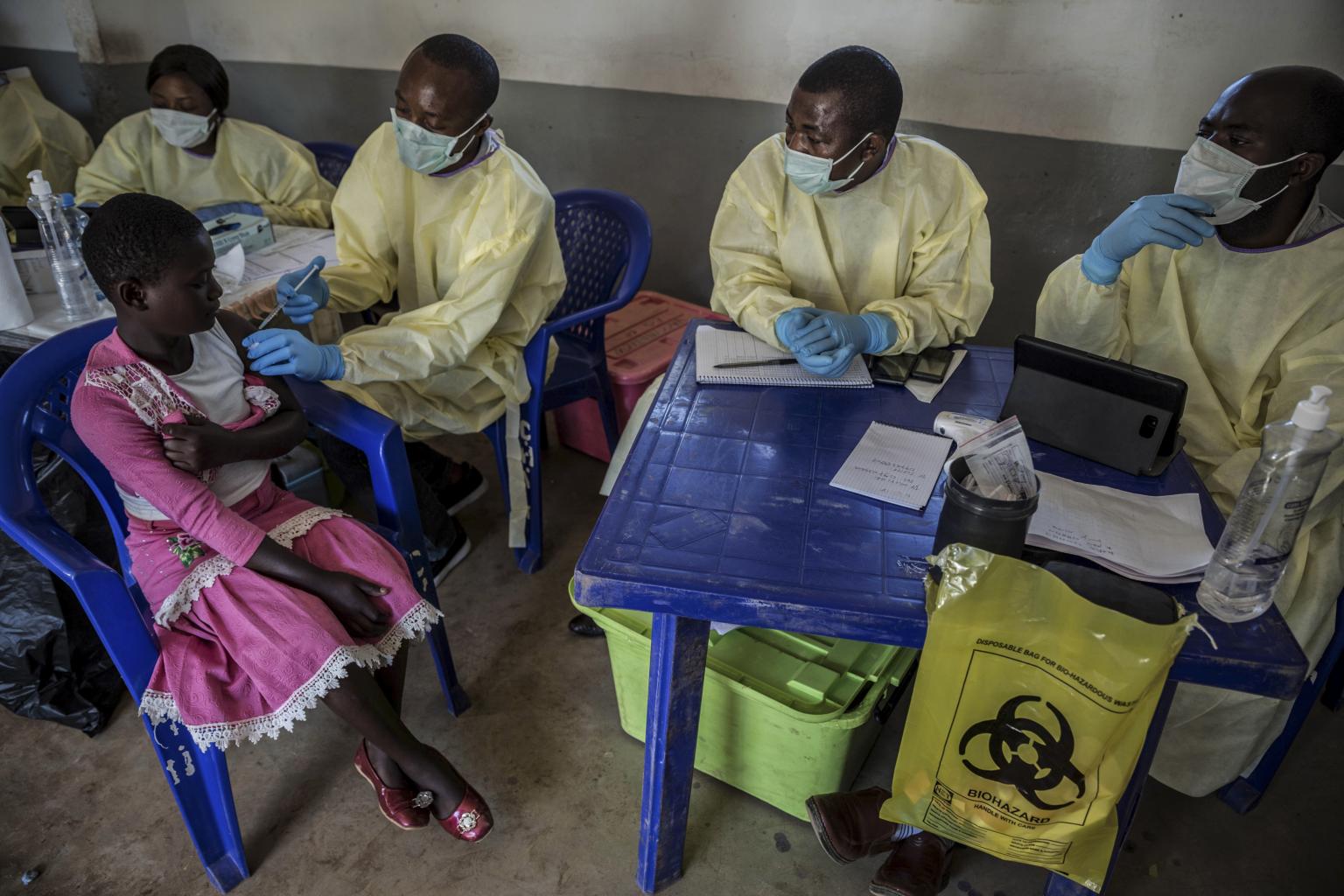Ebola fatalities in Congo raise concerns over more virulent strain
Sign up now: Get ST's newsletters delivered to your inbox

A girl receives an Ebola vaccination in Katwa, Congo, on May 12, 2019.
PHOTO: NYTIMES
NEW YORK (BLOOMBERG) - The strain of Ebola virus that killed all three people known to have caught it in the Democratic Republic of Congo since April may be more virulent, according to a non-profit group that runs three treatment centres there.
An acute loss of blood was the first symptom observed in all three patients reported in Congo's remote north-western province of Equateur, said Dr Baweye Mayoum Barka, the incoming head of mission in the country for the Alliance for International Medical Actions.
That is unlike cases seen during the previous two outbreaks there, in which most began with fever or fatigue, and only about 15 per cent of patients haemorrhaged, he said.
Genetic sequencing of the virus responsible for the latest outbreak indicates it is unlike the strain that sparked larger epidemics in 2018 and 2020, Dr Mayoum Barka said.
Those outbreaks sickened about 180 people, according to the World Health Organisation (WHO).
Almost 300 people who had been in contact with the latest cases are being monitored for infection, the WHO's Africa Region office said on Tuesday (May 17).
The first patient, a 31-year-old man, developed symptoms on April 5 and died 16 days later at a treatment centre in the city of Mbandaka.
Only two additional cases have been confirmed, suggesting the strain is less transmissible, Dr Mayoum Barka said.
"It seems that, while the reproductive rate is quite low, the virulence of the virus is very high," he said in an interview on Wednesday.
Ebola virus disease was discovered in Congo, Africa's second-largest country by land area, in 1976.
Until vaccines and treatments became available in recent years, outbreaks with fatality rates of up to 90 per cent frequently triggered international concern.
The 2018 and 2020 Ebola outbreaks in Congo, the biggest in sub-Saharan Africa, resulted in 50 per cent to 60 per cent mortality, mostly as a result of fluid loss caused by acute diarrhoea, Dr Mayoum Barka said.
Although the current outbreak appears to be contained, members of the affected community in Mbandaka have been reluctant to undergo testing, fearful of being asked to isolate in a dedicated facility, he added.
That is hampering disease surveillance efforts, just as vaccine hesitancy leaves more people vulnerable to the infection, he said.
Some 22 contacts were identified as being suspected Ebola cases by May 15.
Of those, six died before they could be tested, and 16 refused to be isolated and are still in the community, he said.
"We need to remove the thinking that an isolation centre is a mortuary centre," Dr Mayoum Barka said.
"This makes the response very, very complicated."
Just over 800 people out of a regional population of about 340,000 have been vaccinated, compared with tens of thousands in more recent outbreaks.


